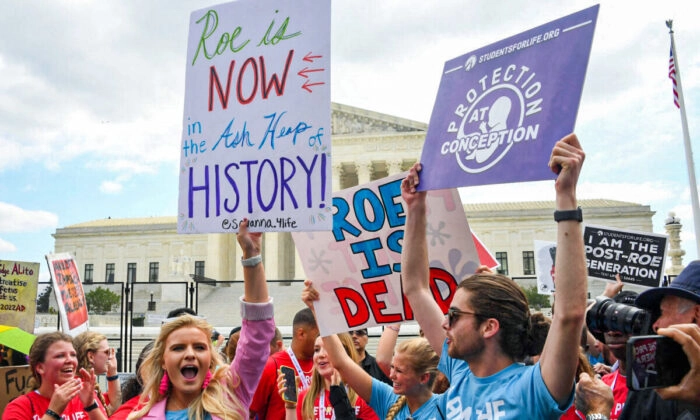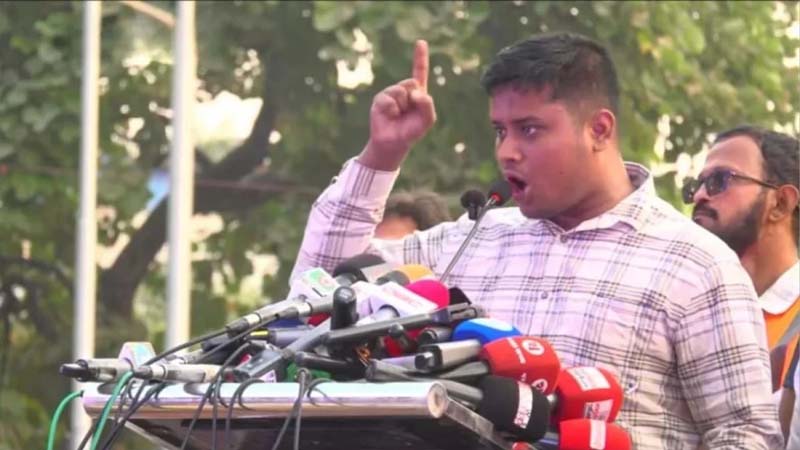Supreme Court May Allow Emergency Abortions in Idaho

The U.S. Supreme Court appears ready to temporarily permit emergency abortions in Idaho when a woman’s health is at risk. This development follows an apparent accidental release of a court opinion on Wednesday. The unsigned opinion, initially published by Bloomberg News, dismissed the case on procedural grounds, indicating the court will not yet address the merits of the dispute. This decision would reinstate a lower federal court ruling that paused Idaho’s near-total abortion ban, allowing hospitals to perform emergency abortions if necessary to protect the mother’s health.
The case centers on whether a federal law mandating emergency care for any patient overrides Idaho’s strict abortion ban, which only allows the procedure if the pregnant person’s life is in danger. It remains unclear if the document is final, and a court spokesperson stated that a decision in the joined cases, Moyle v. United States and Idaho v. United States, will be released in due course.
The apparent split in the opinion suggests a 6-3 decision, with Justice Ketanji Brown Jackson writing a partial agreement and a partial dissent. She believes the federal law should override Idaho’s ban and that the Supreme Court should address the issue immediately rather than sending it back to the lower court. Liberal justices, along with Justices Amy Coney Barrett, Brett Kavanaugh, and Chief Justice John Roberts, either wrote or joined in concurring opinions, while Justices Samuel Alito, Clarence Thomas, and Neil Gorsuch dissented.
The document was dated Wednesday, but the court only announced two unrelated rulings that morning. If the document reflects a final decision, it would be the second time this term that the justices have avoided ruling on the merits of an abortion case. The opinion suggests the justices are allowing continued access to emergency abortions as the case proceeds through the courts.
Justice Elena Kagan, in her concurrence, emphasized that the decision would prevent Idaho from enforcing its abortion ban when necessary to prevent serious harm to a woman’s health. She noted that the federal law, known as the Emergency Medical Treatment and Labor Act (EMTALA), unambiguously requires hospitals receiving federal funding to provide necessary medical treatment to stabilize a patient. Justice Jackson agreed, criticizing the court’s prior decision to allow Idaho’s abortion ban to take effect temporarily, which she described as an unnecessary catastrophe.
Justice Alito, in his dissent, argued that the court should have ruled on the merits, finding the dismissal a puzzling reversal. He believes the federal law does not require hospitals to perform abortions in violation of Idaho law and mandates treating, not aborting, an unborn child.
Justice Barrett, while agreeing with the dismissal, pointed out that Idaho’s law had significantly changed twice since the lawsuit began, rendering the scope of the dispute unclear. Her concurring opinion echoed her concerns during oral arguments about the circumstances under which the state’s law would allow emergency abortions.
The accidental publication of the opinion, coming at the end of the court’s term, echoes last year’s leak of the draft opinion overturning a constitutional right to abortion. While abortion rights advocates welcomed the apparent outcome of the Idaho case, they cautioned that it does not represent a clear victory. Alexa Kolbi-Molinas of the American Civil Liberties Union’s Reproductive Freedom Project noted that the Supreme Court had the opportunity to affirm the right to emergency abortion care but appeared to have failed to do so.
This sentiment mirrored reactions earlier this month when the court rejected a bid by anti-abortion medical organizations to limit the availability of mifepristone, a common abortion pill. The court’s decision preserved widespread access to the drug by finding the plaintiffs had no standing to challenge its approval.
A broad decision in the Idaho case could impact over a dozen states with near-total abortion bans enacted since the court overturned Roe v. Wade in 2022. The federal emergency care law, EMTALA, has been one of the few ways the Biden administration has challenged state abortion bans and sought to preserve access, though the legal battle affects a limited number of patients. Idaho sought Supreme Court intervention after the Ninth Circuit temporarily blocked the law, and in agreeing to hear the case, the justices reinstated the ban.






















